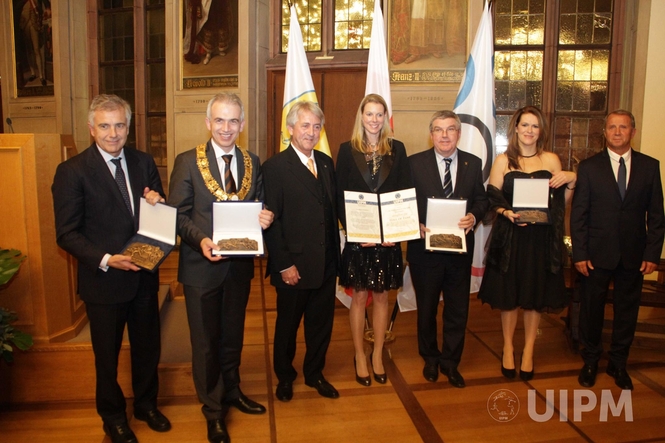Golden memories: Zsuzsanna Vörös (HUN) on the day she joined the pantheon at Athens 2004
Hungary has an enviable heritage in the men’s Olympic Modern Pentathlon. Twenty-one medals, eight of them gold – and all but one of them already accumulated by the time a Hungarian woman travelled to the home of the Olympic movement aiming to join the pantheon.
Zsuzsanna Voros didn’t just join the pantheon, she carved her name on the ancient stone with a truly unforgettable display of athleticism at the Athens 2004 Olympic Games.
After Stephanie Cook of Great Britain four years earlier, Voros (HUN) became the second member of an exclusive club by winning her gold medal. She also joined Janos Martinek, Andras Balczo, Ferenc Torok and Ferenc Nemeth as Hungarian individual Olympic champions.
So how did she do it, and how did it feel? Voros (HUN) takes up the story …
Q: Athens 2004 was the second time women had competed at the Olympic Games. Had you seen a big improvement in standards in those years?
A: The development among women competitors was absolutely significant. The possibility of participating in the Olympics had a great positive effect on attracting many female athletes and also to keep them in this sport.
The high attendance of female competitors during the World Cups and World Championships held between the first and second Olympics back up that statement. There was a World Cup where three groups needed to be started instead of the usual two.
Q: Before Athens you had won the World Championships gold medal in 2003 and 2004. When it came to the Olympic Games did you feel confident about winning gold?
A: In the year of 2004, besides the Olympics I participated in 11 international championships, in which I managed to finish on the podium 10 times. One of them was a silver and the rest were gold. Therefore, I came to the Olympics rather confident. The Olympics is a special competition for every competitor where anything can happen. But my confidence was in the right place.
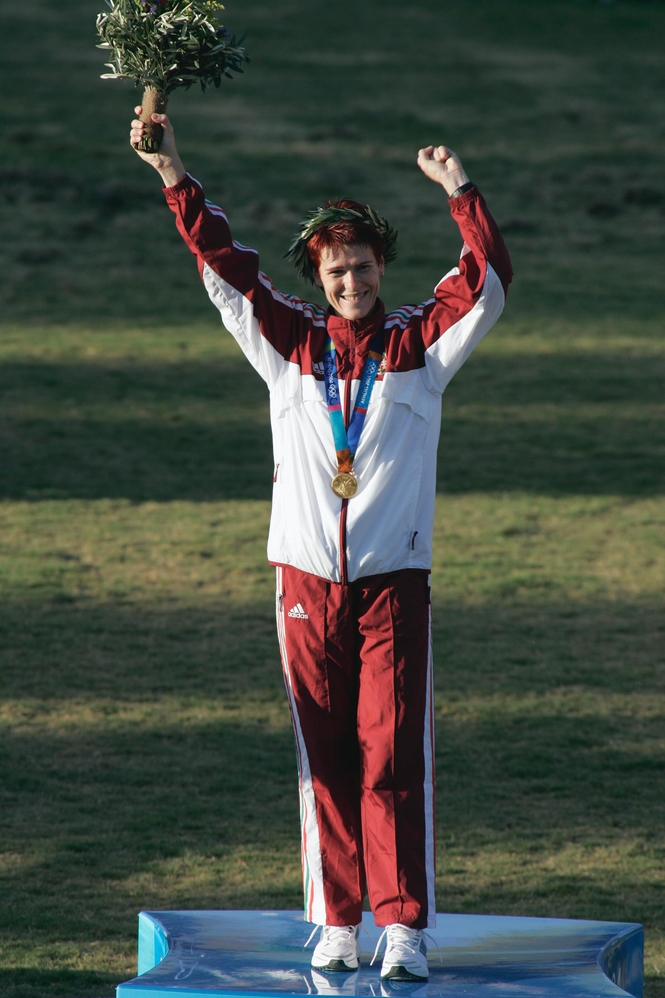
Q: Athens was your second Olympic Games. How did you find the whole experience compared to Sydney 2000?
A: I arrived in Sydney as a young girl with fire inside me. But in Athens I stood on the start line as a grown female pentathlete. Between 2000 and 2004 I experienced what it’s like to be in a pit, and also what it’s like to be on top.
Q: Were you nervous when the competition began?
A: I was really anxious. I woke up an hour and a half before my alarm clock. I couldn’t even eat my breakfast, which is really unusual. The fact that they took us to the venue two hours before the competition – meaning we had to stay in the dressing room until the start – didn’t help me relax either. I remember finding a newspaper in my purse, and I tried to divert my attention with it.
Q: Shooting went quite well (182 points / 3rd place). Was it a relief to start strongly?
A: My results in Shooting wasn’t really a relief. There wasn’t much time to contemplate it afterwards. Half an hour after the last shots the Fencing had started. I stayed in competition mode.
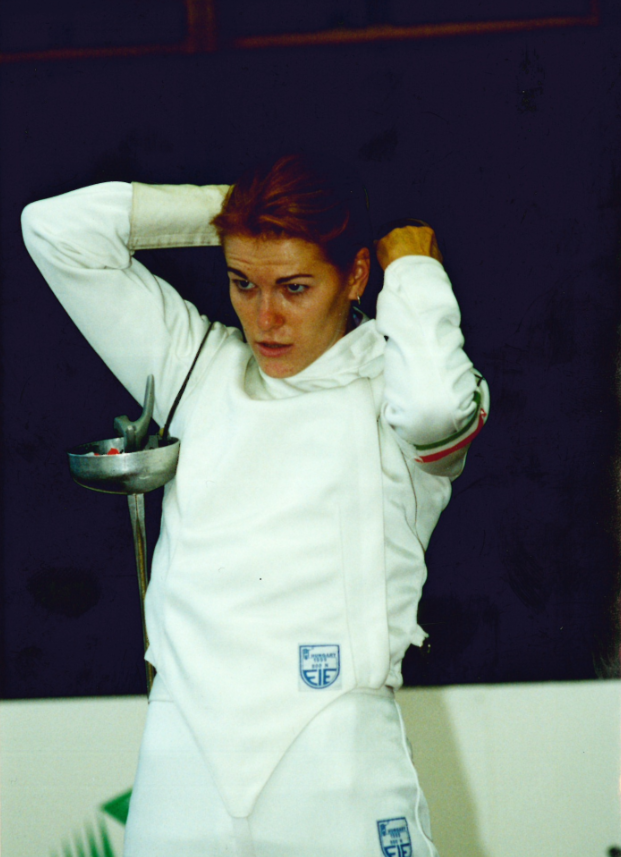
Q: You performed very well in Fencing and moved into the overall lead. Talk us through the event.
A: My Fencing, like my whole competition style, was also characterized by a sense of purpose. I had been watching and studying the Fencing of the athletes competing in the Olympics for years. I knew their attack and defence. I knew the style of 35 people step by step. When someone was standing in front of me on the piste, I saw not her personality but her fencing technique and what I had to do to beat it.
Q: After Swimming and Riding, you had built a stronger lead. What were you thinking at the start of the Running?
A: After the Swimming and Riding I felt like I had won the race – I had a 41sec advantage. Knowing my Running abilities I had no doubt that I would succeed. I told myself that if I didn’t twist my ankle, I would win. Antal Kulcsár, who was the head coach at the time, came to me before the Running and he was so anxious. I just told him: “Do not worry! I already got this.”
Q: When you crossed the finish line to win gold, how did it feel?
A: At first, I felt glad it was finally over! I got really tired of the rush of the whole day, as it turned out that we started later but finished the race earlier. My next thought was that I had achieved what I worked towards for years and what is the biggest dream of every athlete.
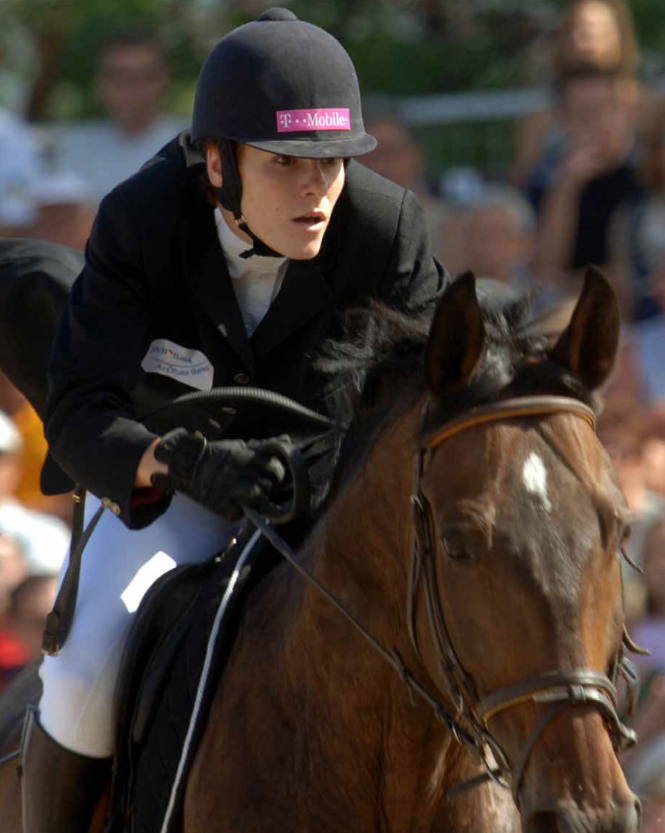
Q: Who was the first person you wanted to see afterwards? Who did you call?
A: I just wanted to hug the coaches present and I wanted to rejoice with them. When I got my phone back after the competition, the first call came from János Martinek, who just said “welcome to the club”. It was an unforgettable moment.
Q: Did you enjoy the Medal Ceremony?
A: I really enjoyed the Medal Ceremony. I imagined several times before how I would stand on the top of the podium. There were two ideas: one was to jump up on it, the other was that I would step up onto the podium gracefully. Finally, I chose the latter. However, the most touching was that at least half of the 15,000 spectators were Hungarian. When the anthem was sung, I could clearly hear the lyrics.
Q: How was the reception when you arrived home in Hungary?
A: I had a touching welcome in Székesfehérvár. The Mayor received me and about 2,000 fans came to greet me. For more than an hour, I only wrote autographs.
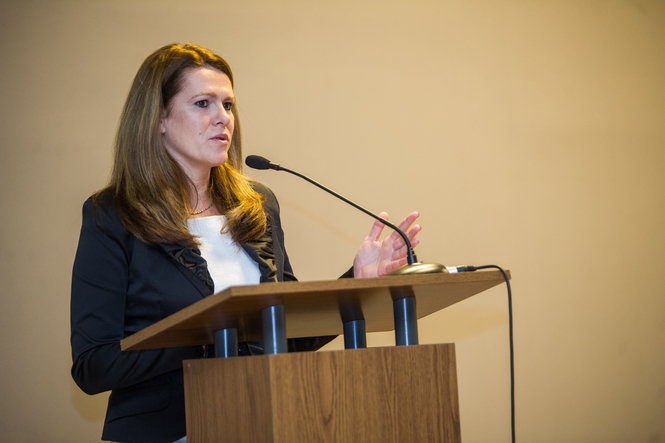
Q: When you returned to competition after Athens, did you feel pressure from being the Olympic champion?
A: I realised that everyone wanted to beat the Olympic champion. But I was still able to achieve results. I won the World Cup Final in Darmstadt (GER), then I became a gold medallist in relay at the European Championships. I won a silver medal at the World Championships in 2005 and a gold medal at the European Championships in Budapest in 2006, and in 2007 I also won the World Cup Final.
Q: What do you think it takes to become an Olympic champion? What is your advice for the young pentathletes aiming for medals at Tokyo 2020 (in 2021)?
A: They need to be purposeful. Everything must be subordinated to the sport and they must have a strong desire. Of course, they also need to have a lucky day.
Q: Tell us about your development and coaching work in Modern Pentathlon. Do you get the same satisfaction from helping other athletes fulfil their potential?
A: After my career as an athlete, I worked as a swimming and combined (Laser Run) coach in Székesfehérvár. I am currently the Director of the Alba Volán Sport Club. I feel that what I can really help future generations with is to prepare them spiritually and mentally for competitions in order to achieve their goal.
